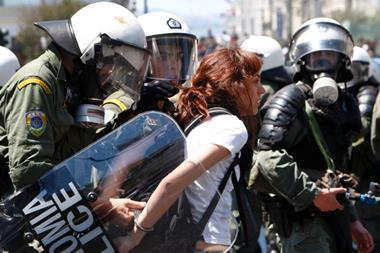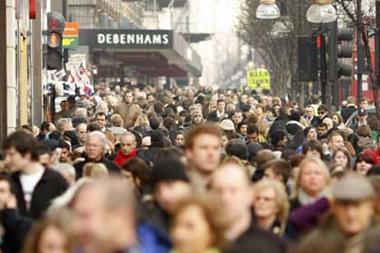The UK riots and ensuing damage that occurred in August took businesses by surprise, not least those whose premises were looted or burned, says Sue Copeman
The root causes of the UK riots are far wider than the alleged direct trigger - the fatal shooting by police of a local man in the municipal borough of Tottenham.
Drugs, a crime funded lifestyle and laziness may play a part – if one believes the media - but it’s too easy to blame these and not look beyond them to the fundamental failings of a society that has let a large proportion of its members down. And while the UK may be the victim today, other European countries are also likely to fall prey to this worst kind of activism.
Many European businesses have embraced globalism and the benefits it provides while ignoring what’s happening on their doorsteps.
This includes communities divided by racism, disaffected minority groups falling outside the education system and turning to crime and gang warfare, and a general feeling of hopelessness among the unemployed, and perhaps unemployable, as regards changing their situation by any legal means.
Clearly economic circumstances and demographic changes have played a major part in reducing the number of jobs and opportunities available for young people. Many European companies have chosen to outsource some of their more labour intensive activities to countries in the developing world where employment costs are lower. As Europeans look forward to a longer life span, retirement ages are being extended with a consequent reduction in new recruits. And, with fewer jobs available, despite anti-discrimination legislation, I suspect that some companies give preference to applicants that they view as ‘nationals’.
It would be unrealistic not to recognise that racism still abounds, certainly in the UK. In Britain, today’s target is the black community. However, sadly racism is nothing new. At one time Jewish people were hated and hounded, Irish immigrants came in for their fair share of disapprobation, Asians were – and to some extent still are – mistrusted and discriminated against.
If the UK is typical of Europe, it’s a sorry state of affairs. And it doesn’t seem so much different from the tribal tensions that we all deplore in countries like Libya and some parts of Africa – those tribal tensions that all too frequently lead to war.
So the UK, and perhaps other countries in Europe, has little to congratulate itself about how it is handling the inhouse issues that are now creating civil unrest in other parts of the world.
This is the macro picture. How does it translate to the micro – in this particular context, what risk managers can do to protect their outlets against riot damage?
Hopefully, there will not be a repeat very soon of what happened in August in the UK. And there’s no easy answer as to how any European company can protect its outlets against mob vandalism. But there are some strategies that might help.
I believe that the key is involvement with the local community. Large retail chains with a presence in every high street can be pretty anonymous and, as such, expose themselves as targets to rioters and looters. Individual outlets should pursue a policy of employing local people and getting involved in local affairs, for example funding school initiatives, scholarships, land for allotments or whatever.
Perhaps, more controversially, they need to address head on the ‘more difficult’ sectors of their local community. Funding a drug rehabilitation centre, providing support for families in need, etc, may be difficult but in the UK where the government is looking for the ‘big society’ to support services that can no longer be funded by the public sector, such initiatives are now feasible.
The fundamental principle as far as risk management is concerned is that it is far more difficult to trash something to which you feel an allegiance.
Have the riots harmed the UK’s reputation globally? Probably yes but – in these times of civil unrest and national uncertainty – few European countries can be sure that they may not be the next victims.





















No comments yet